Sustainable cities provide a favourable habitat for bees and Cardiff is leading by example
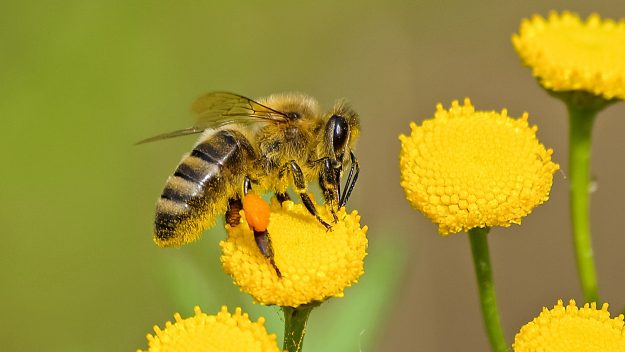
Cardiff is being transformed into a ‘bee friendly’ city by converting green spaces and unused urban sites into rich habitats for bees. The initiative was conceived by Cardiff University while making new antibiotics that can tackle superbugs found in hospitals.
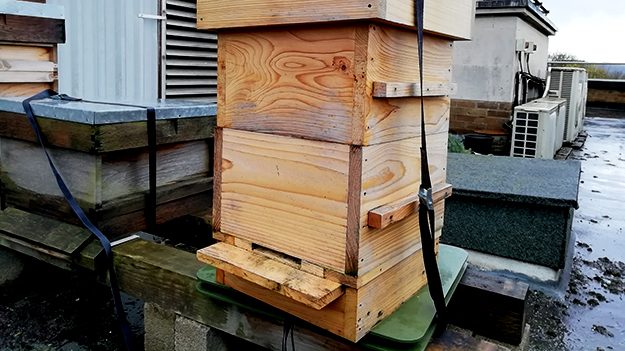
.embed-container { position: relative; padding-bottom: 56.25%; height: 0; overflow: hidden; max-width: 100%; } .embed-container iframe, .embed-container object, .embed-container embed { position: absolute; top: 0; left: 0; width: 100%; height: 100%; }
Increase in honey bees in Cardiff was acknowledged by Steven Blunt, manager for one of the bee projects at Cardiff University.
“To turn Cardiff into a bee friendly city, we have also set up hives at the Welsh government building, Hadyn Ellis building, Pierhead building and in Cardiff Bay, making it city wide as possible,” Blunt said. “We are also helping people in Cardiff to create pollinator friendly gardens. In schools, we are creating green spaces that offer conducive habitat for bees, as one of our major goals is to upscale the bee project.”
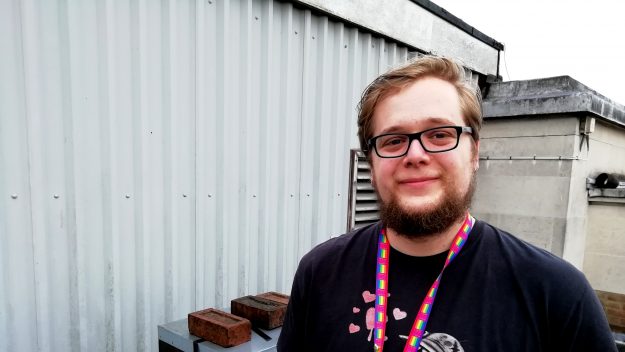
“For this we are promoting dandelion, a flower which isn’t an ornamental plant but is the best plant for bees.”
Blunt encouraged Cardiff Council to promote bee-friendly initiatives.
“However an increase in honey bees means competition for survival with other insects for food. So we have to maintain a balance as well,” said Blunt.
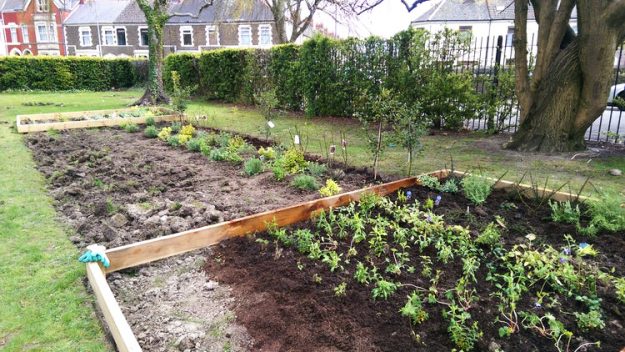
The initiative in Cardiff is distinctive and helpful to increase the bee numbers, as their population is declining across the UK. The UK is home to 26 bumblebee species and over 250 solitary bee species and two of the bumblebee species have gone extinct since 1940.
A report by Buglife Cymru has revealed that seven of the Welsh bees have gone extinct and a further five are close to extinction.
A distress call was made in the UK parliament on 20 March, 2019, by the Labour MP, Alex Sobel, where he raised the issue of declining insect population due to human-led activities and referred to the situation as the ‘Insect Armageddon’.
Sobel said, “Insects are the canary in the coalmine of animal life on the planet: if insects go, all other species will follow. We are experiencing a climate emergency and insects are on the frontline of the battlefield, and our actions are causing the disruption to their ecosystem.”
Pollinators in the UK face various threats and their extinction could cost the government approximately £1.8bn annually.
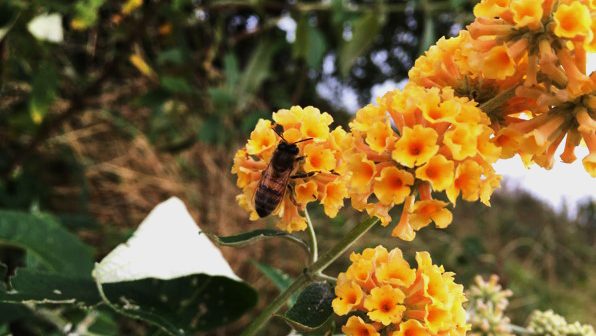
Clare Dinham, the Wales Manager of Buglife Cymru outlined several threats that the pollinators including bees face, including habitat fragmentation, agricultural intensification, pesticides, climate change, disease, light pollution and electromagnetic radiation, along with other factors.
To address habitat fragmentation, Buglife Cymru’s Wales B-Lines initiative aims to tackle the problem of loss of flowers and pollinators in Wales by restoring and connecting wildflower-rich areas across the country to create a wildflower-rich network.
Dinham also made special reference to the “Resilient Wales” goal of the Well-being of Future Generations (Wales) Act 2015, which urges public bodies in Wales to focus on maintaining and enhancing a biodiverse natural environment with healthy functioning ecosystems.
A latest research carried out in collaboration with Cardiff University, has revealed that cities could serve as pollinator ‘hotspots,’ as gardens offer a favourable habitat for bees due to their high pollinator diversity.
The research recommends effective management of public green spaces by increasing flowers, better garden management, expanding allotments in towns and cities and empowering communities to protect bees and pollinators.
The presence of pollinator hotspots in Cardiff was also acknowledged by Dinah Sweet, the Secretary of Cardiff, Vale and Valleys Beekeepers.
“Honeybees in Cardiff are everywhere, from the university’s roofs to various hotel roofs and in many of allotments and parks around the city centre,” Sweet said.
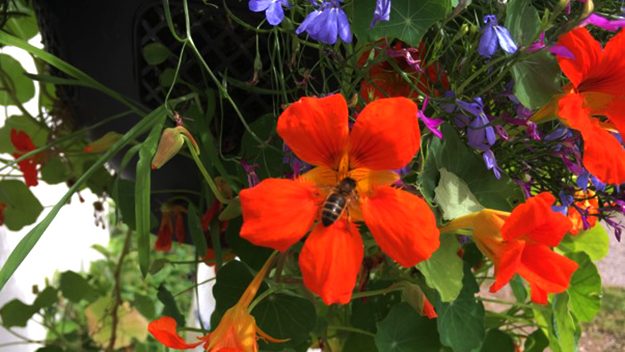
She drew attention to the fact that other pollinators are under pressure and stated some of the factors behind it.
“Climate change, more buildings going up on vacant rough land and more cars with homeowners covering gardens with hard standing for their cars,” Sweet said.
“Children are much more aware of conservation now and a few schools in and around Cardiff have a hive of bees with a specific environmental teacher trained to look after them, enthusing their pupils with facts about many pollinating insects, birds etc,” said Sweet, explaining how children are being taught about the importance of bees.
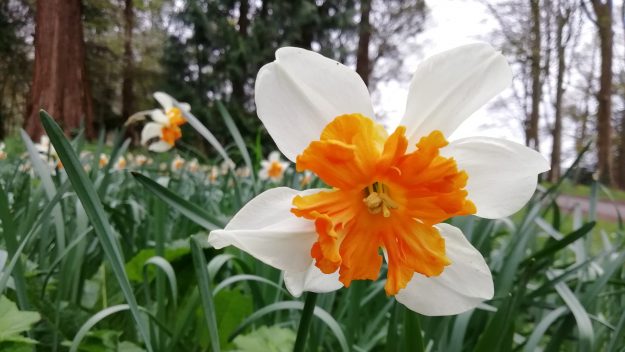
To further promote bee conservation in Cardiff, there are certain steps the Cardiff Council can take. Dr. Ian Vaughan from the Biosciences School of Cardiff University suggests, “Protecting allotments from development and maybe increasing the area of allotments within cities, and also enhancing amenity grasslands (green spaces): this can include planting annual or perennial flower species, and mowing less frequently so that plants have the opportunity to flower.”
To underscore the importance of pollinators, Pete Frost, Senior Urban Advisor from Natural Resources Wales (NRW) said, “Pollinators are essential to our everyday lives and we need them to grow the food we love such as apples, pears and strawberries. Every third mouthful of food we eat has been created by pollination”
Frost also urged Cardiffians to contribute towards making their gardens pollinator-friendly by not using pesticides, less mowing of lawns and growing pollinator-friendly plants.
The School of Pharmacy and Pharmaceutical Science at Cardiff University up-scaled the project to various areas in Cardiff including the Students Union, around Redwood Building and on the roof of St David’s shopping centre.
Pollinator gardens have been created in Cardiff, comprised of plants which are preferred by bees and can help to produce antibacterial honey. This antibacterial honey is aimed to treat antibiotic resistant superbugs found in hospitals.
